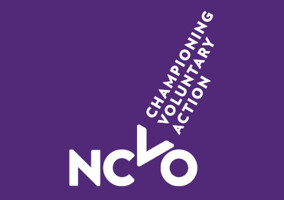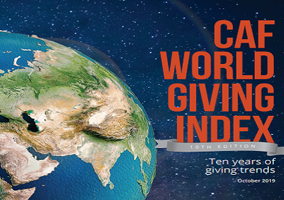If you have been paying attention to recent government announcements, you will know that “levelling up” is the key catchphrase du jour. But what does it actually mean, and how will it affect charities and those who support them?
The phrase implies two key things. “Levelling” suggests a process in which the aim is to address some existing inequality and thus make things fairer. “Up”, meanwhile, implies that the process will be done without harming aspiration and achievement, and result in everyone being at least as well-off as they are now. The combination of the two thus neatly charts a route between the inconsistency of the dreaded “postcode lottery” and any accusation that a push for equality necessarily becomes a race to the bottom.
Whether the inequalities being targeted are solely geographic (for example, between the North of England and the South, or between prosperous and “left-behind” areas), or run deeper remains to be seen. But one thing seems certain: the “levelling up” narrative is a vital component of the government’s bid to reposition itself as a “one nation” party and move beyond the last few years of Brexit-related wrangling and division.
What, then, does this mean for charities? Are they part of the solution or part of the problem? And does the charity sector itself need “levelling up”?
Charities can play a number of important roles
In terms of making the geographic distribution of prosperity and opportunity more even across the UK (which seems to be the primary drive of this new narrative), charities can play a number of important roles. In places that have previously been “left behind” but are now to be the focus of additional investment and support, or are to be given greater freedom through devolution, the involvement of charities is vital to ensure that such efforts are tailored to the specific needs of the areas and that any political and economic gains translate into genuine societal benefits for the whole community.
Grassroots charities and civil society organisations often have a deep understanding of the needs and priorities of an area, as well as experience of addressing them through their work. They can also act as a focal point for local civic engagement and provide safe spaces in which those from disparate communities can come together to find common cause and shared identity. So both in the outcomes they achieve and in the process of delivering them, charities can be powerful catalysts for “levelling up” within a local area (as CAF has explored in our work on the potential of place-based giving).
Charities can also play an important role in “levelling up” by ensuring that the views and concerns of marginalised people and communities are heard. In any democracy, there is always a danger of a “tyranny of the majority”, where the largest groups dictate decision-making, whilst minorities may struggle to have their voices heard.
Campaigning and advocacy are vital tools for overcoming this imbalance, so if we are to “level up” as a society it is crucial that we recognise the value of civil society’s role in this regard, and defend it vigorously.
Charities and funders can help “level up” nationally too. Organisations with deep knowledge of “left behind” areas can advocate strongly for the needs of those areas at a national level, and demand that they are part of the government’s plans. Charities and funders can also do their part to address geographic inequalities by ensuring they take into account where they themselves work or fund, and how this fits in with other activity in the sector, to ensure that there are not too many “cold” or “hot” spots of voluntary activity across the country.
Easier said than done
Of course, this may be easier said than done: a recent NPC provocation paper echoed the findings of previous research in highlighting how uneven the distribution of charitable resources in the UK is at present. This is not that surprising: civil society is always likely to be stronger in areas with higher existing levels of social capital, and charitable donations are determined by the choices of individuals and their ability to give. As a result the distribution of both charitable organisations and the resources available to them is unlikely to be even across different areas; and need may not be well-matched with provision.
This raises a crucial question: if charities are to play a key role in “levelling up”, then does the charity sector itself need to be “levelled up”?
Uneven distribution and the mismatch of supply and demand has long been an issue for the voluntary sector, but in the context of new government ambitions the need to address it takes on even greater urgency. Various solutions have been proposed that might tackle some aspects of the problem, from using unclaimed assets to form a Community Wealth Fund to introducing geographically differential rates of Gift Aid (an idea many in the sector disagree with, on the grounds that it fundamentally misunderstands the nature and purpose of tax relief on donations, as CAF argued in our submission to the Charity Tax Commission in 2018), but none have yet solved it.
Maybe such roundabout solutions are no longer necessary anyway: in a new political climate where public spending seems to be back on the menu, are there now opportunities for government to support efforts to level up the sector more directly, through targeted grants or match funding? If charities can make the case for their importance when it comes to efforts to level up both locally and nationally, then the argument that additional support of this kind is not only in the sector’s own interest, but in the government’s too, seems compelling.
Rhodri Davies is head of policy at the Charities Aid Foundation (CAF).
|
Related Articles












